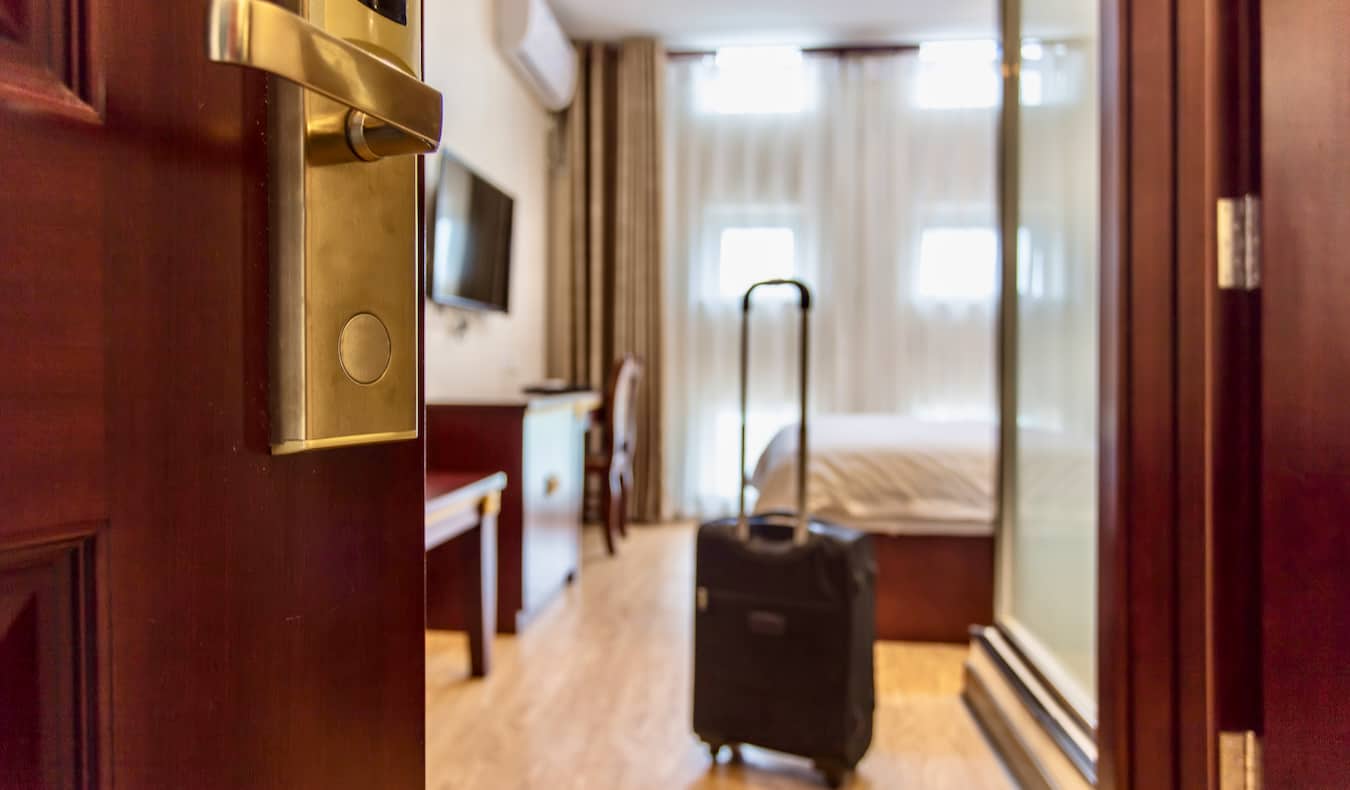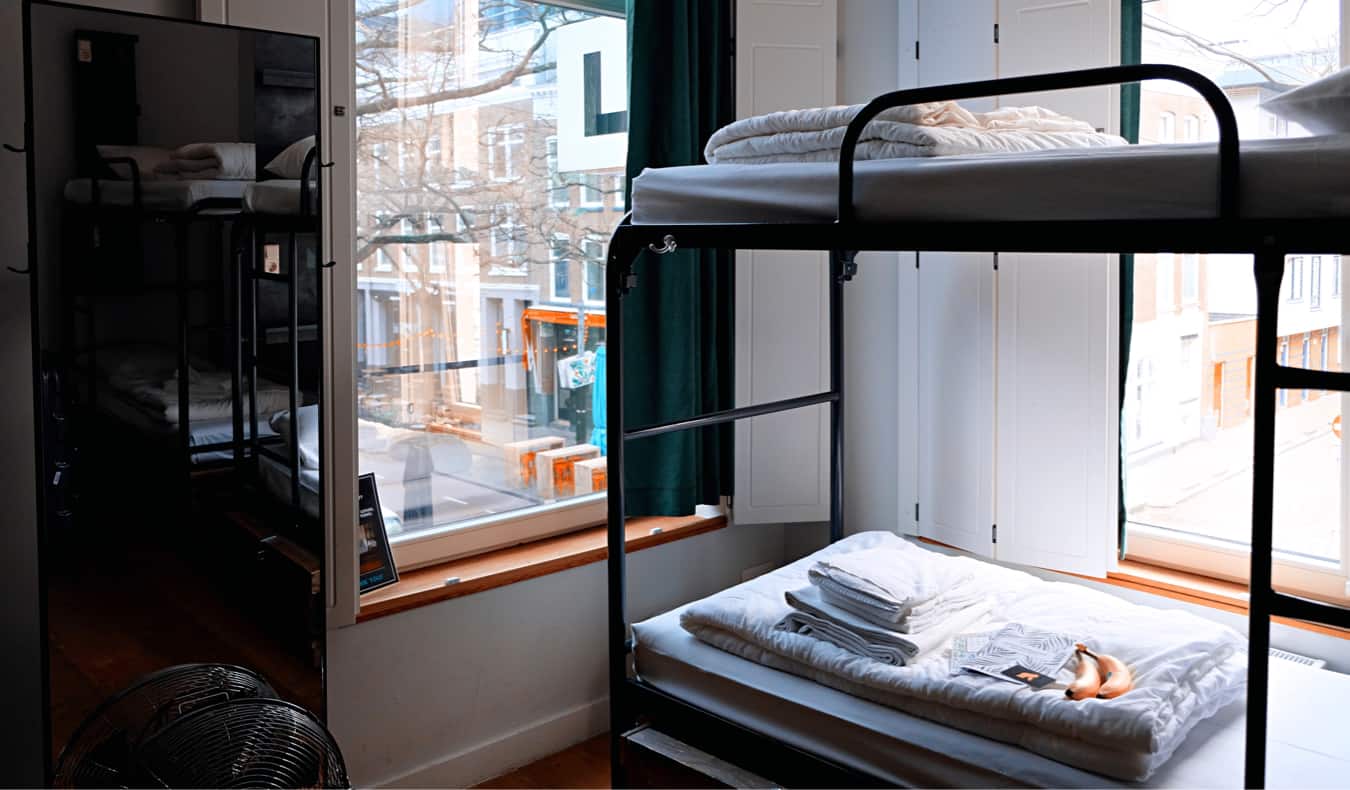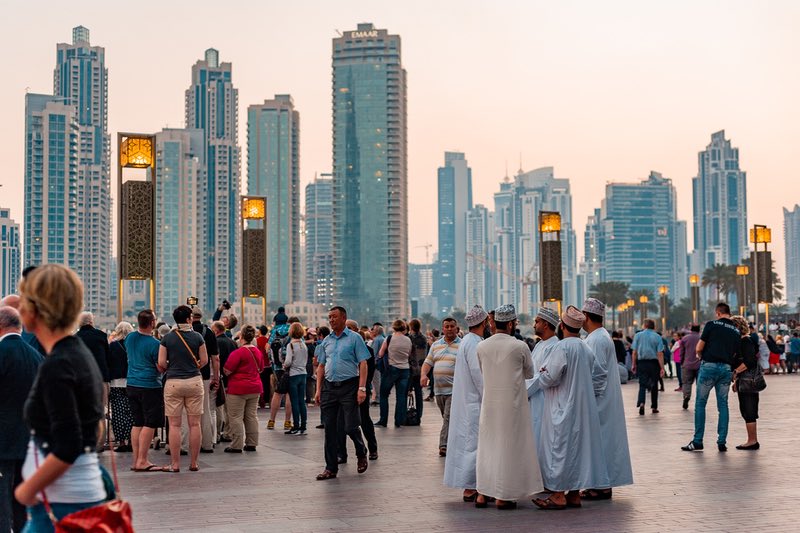Accommodation is one of the biggest fixed costs for travelers, and cutting this expense can lead to substantial savings! Many budget travelers would even sleep in unconventional places, like barns, if it meant a cheaper stay! Personally, I’ve spent nights in hammocks in national parks just to save money.
But you don’t have to go to such extremes.
No matter your accommodation preferences, one thing is certain: nobody likes overspending on a place to stay. Since you need a place to rest every night, reducing this cost can significantly lower your overall trip expenses. After finding a cheap flight, securing affordable accommodation is the next most important step to staying within budget.
Thankfully, there are plenty of ways to score affordable lodging. Here are some of the best methods:
Tip #1: Stay in Hostels

Hostels are a budget-friendly option for travelers. They typically feature dormitory-style rooms with shared facilities, which can be a turn-off for some. However, many hostels offer private rooms for solo travelers or couples, making them more versatile than you might think.
Hostels aren’t just for young people—I’ve met travelers in their 50s, 60s, and even 70s in hostels. The stereotype that hostels are dirty or only for young backpackers is outdated. In fact, many hostels now offer more amenities than budget hotels, including Wi-Fi, tour desks, lockers, and even bars. Hostels are cleaner and more comfortable because younger travelers now expect a higher standard.
In my experience, hostel dorms offer the best value for budget-conscious travelers. While you may need to share a room, the savings are worth it.
Some large hostel chains like YHA and Hostelling International cater to older travelers and groups, so you’re likely to encounter families and tour groups alongside younger backpackers. Hostels are safe, affordable, and welcoming to everyone—don’t dismiss them just because you’re not a backpacker!
If you’re booking a hostel, I recommend using Hostelworld, which has the best selection and deals. Also, if you’re heading to Europe, consider a HostelPass, which offers 10-20% discounts on hostels and activities across Europe.
Tip #2: House/Pet Sit

Each year, people who travel abroad often need someone to look after their pets. Rather than pay for expensive boarding services, they turn to websites like Trusted Housesitters, which connects them with travelers who are willing to pet sit in exchange for free accommodation.
House sitting allows you to enjoy the comforts of home—like a kitchen and laundry facilities—while saving money. It’s a fantastic option for long-term travelers who don’t mind taking care of pets. You might even score additional perks like access to a car or a pool.
While house sitting is becoming more popular, it remains relatively unknown. You’ll need to join Trusted Housesitters for $129 per year, but once you’re in, you’ll have access to house-sitting gigs worldwide. Many travelers do this full-time, hopping from place to place and enjoying free accommodation along the way.
Building up your reviews can take time, but once you’ve established yourself, you can find house-sitting opportunities in fantastic locations!
Tip #3: Collect Points!

One of the best ways to save on accommodation is to get it for free. If Couchsurfing isn’t your thing but you’re still interested in free stays, start collecting hotel points and airline miles.
Many hotel loyalty programs allow you to earn points through your day-to-day spending, which you can redeem for free nights. Some credit cards even offer sign-up bonuses equivalent to several free hotel stays.
By maximizing points and miles, I save thousands of dollars every year. It’s one of the best ways to cut down your accommodation costs.
Tip #4: Volunteer

Many hostels and other establishments offer free stays in exchange for a few hours of work each day. It’s a great way to meet new people while traveling on a budget.
Some hostels post job openings on their bulletin boards, but it’s always worth asking if they need help. If you’re looking to find volunteer opportunities ahead of time, check out Worldpackers, which connects travelers with volunteer gigs abroad.
Worldpackers offers a range of opportunities, including working with NGOs, staying in homestays, or participating in eco-projects. Sign up for $49 per year, and you can start browsing listings. Plus, if you use my link, you’ll get $10 off your membership!
Tip #5: Stay in Hospitality Exchanges

A great way to find free accommodation is to stay with locals who open their homes to travelers. Not only do you get a free place to sleep, but you also gain cultural insights and have someone to explore the destination with.
Popular platforms like Couchsurfing and BeWelcome make it easy to connect with locals offering free stays. Couchsurfing is my personal favorite. While it’s not as popular as it used to be, it’s still a fantastic way to save money and have unique experiences.
You don’t even have to stay with someone—Couchsurfing allows you to meet locals for events, meals, or guided tours. Thanks to the app, I’ve been taken to restaurants and spots that are far off the beaten tourist path.
When selecting a host, I follow these tips:
- Look for profiles with photos to ensure they’re real people.
- Choose profiles that are fully filled out, which shows they’re serious about hosting.
- Prioritize hosts with positive reviews.
- Check for verification, though I don’t mind unverified hosts with many good reviews.
- Ensure they’re active on the platform.
Once you try Couchsurfing, you’ll see there’s nothing to fear. You can save a lot on accommodation and make friends across the globe!
Tip #6: Stay on a Farm

WWOOFing (World Wide Opportunities on Organic Farms) is a popular way for travelers to extend their trips without spending a fortune. In exchange for working on an organic farm, you receive free room and board.
WWOOFing offers an immersive cultural experience while helping you save on travel costs. There are farms in over 100 countries, with stays ranging from weeks to months. Sign up, pay a small fee, and start searching for opportunities.
Tip #7: Stay in a Monastery

If you’re looking for something off the beaten path, consider staying in a monastery. Accommodations are simple, often just a bed and a desk, with basic meals prepared by monks or nuns. Monasteries are quiet, family-friendly, and inexpensive, often only requesting donations or offering low rates.
While some monasteries charge around $50 per night, others are completely free, making them an excellent option for budget travelers seeking peace and solitude.
Tip #8: Stay in Airbnb

Airbnb allows travelers to rent furnished apartments, often at a lower cost than hotels. These rentals are ideal if you plan to stay in one place for a week or more, offering all the comforts of home, including kitchens where you can cook to save on food costs.
While Airbnb can be pricier than hostel dorms, it’s perfect for groups, couples, or travelers who want more privacy without breaking the bank. If you’re not keen on a hotel or hostel, Airbnb offers a middle ground for affordable, comfortable accommodation.


